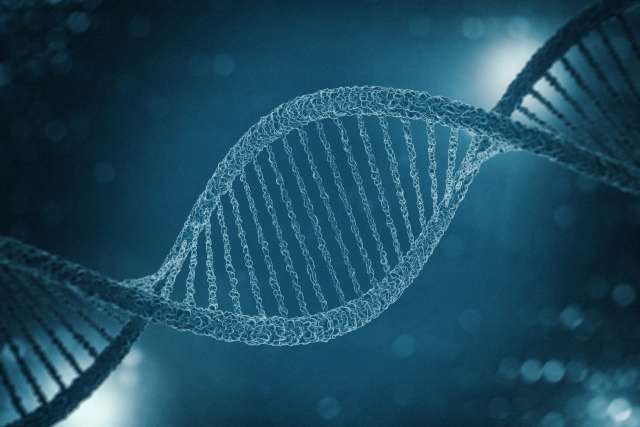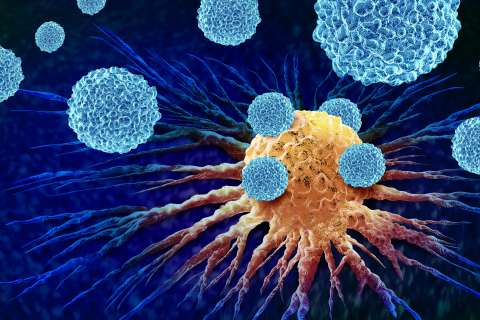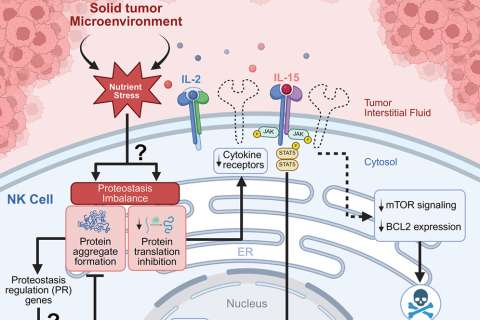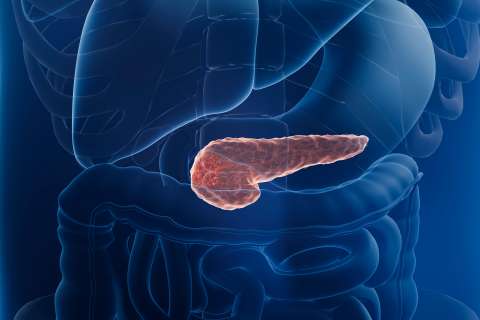For people with certain risk factors, a periodic colonoscopy may not be enough to screen for colorectal cancer. They could benefit from genetic testing.
If testing shows a person is carrying an inherited mutation linked to a higher chance of developing colon cancer, they can undergo more frequent screenings, said Nikhila Ramesh, a UCLA Health genetic counselor.
“Knowing if someone has hereditary predisposition to cancer is going to be really helpful for them, their families and their doctors,” she said. “We’ve been doing such a great job talking about colon cancer risk in general and encouraging people to get colonoscopies, but I think there’s a lack of awareness when it comes to hereditary colon cancer risk.”
March is Colon Cancer Awareness Month, and Ramesh said UCLA Health genetic counselors are available to help people decide if they should be tested, and then understand and process the results.
“Genetic counselors have advanced training in addressing both the medical and emotional aspects of having an inherited condition,” she said.
Colorectal cancer screening — which for most people should start at age 45 — saves lives by catching cancer early.
Learn more about colorectal cancer screening at UCLA Health
Hereditary risk
Colorectal cancer is the third most common cancer diagnosed in the United States. Risk increases with age, as well as with certain lifestyle factors such as smoking, lack of exercise and a diet high in red meat.
But 5% to 10% of colon cancers are caused by an inherited mutation, which may also be called a genetic change or variant, Ramesh said.
“People who have these mutations have a higher risk for colorectal cancer in their lifetime compared to the average person,” she said. “The likelihood depends on the gene that’s involved, the type of mutation and the family history.”
Genetic testing is available to look for certain hereditary colorectal cancer conditions, which are diseases in which mutations increase the risk of colon cancer.
The most common is Lynch syndrome, which affects 1 in 279 people in the U.S., Ramesh said. The lifetime risk of colon cancer for an average person is roughly 5%, but can be up to around 60% for a person with Lynch syndrome.
The next most common hereditary colorectal cancer condition, called familial adenomatous polyposis, or FAP, can cause hundreds to thousands of polyps. Polyps are tissue growths in the rectum or colon that can turn into cancer if they aren’t removed.
“There are multiple colon cancer syndromes,” Ramesh said. “That’s why it’s important if there’s a family history or a personal history, that you check with your doctor or a genetic counselor to see if genetic testing would be a good idea for you.”
She pointed out that not everyone who has an inherited mutation goes on to develop cancer. But to reduce their risk, they will qualify for more frequent screening that starts at a younger age for early detection and intervention. Some people may also be eligible for preventive options such as surgery. Current guidelines call for people of average risk to undergo a first colonoscopy at age 45.
Genetic counselors are trained to assist patients with the physical, as well as emotional, challenges of having an inherited condition.
Learn more about Cancer Genetics Testing & Counseling
Who should get tested
Ramesh said a number of risk factors could suggest an inherited mutation. Some risk factors include: a personal or close family history of colon cancer, especially before age 50; 10 or more polyps found in a colonoscopy; or a family member who has a hereditary cancer syndrome.
The decision to get tested is personal but can be made in consultation with a doctor or genetic counselor.
“For people who don’t have a mutation, there can be some peace of mind,” Ramesh said. “For people who do, it can be empowering to know the risk and how to protect yourself through screening.”
She said many insurance plans will cover a genetic counseling appointment to discuss whether to be tested. Some insurers first require a referral from a doctor. Additionally, most plans cover genetic testing for people considered at increased risk.
Ramesh said meeting with a genetic counselor before testing helps people make an informed decision, including considering any ramification, such as sharing a positive result with family members.
“You can come in and get all the information you need and choose not to get tested,” she said. “This is very much a collaborative process. We give you the information, but you’re in charge.”
Genetic counselors also inform people about privacy protections. A federal law prohibits discrimination by health plans or employers based on genetic information with some limitations, Ramesh said.
One limitation of genetic testing is that not all genes associated with increased cancer risk have been identified.
“We are still learning when it comes to genetics,” she said. “Someone might test negative because we don’t know about the gene yet.”
Testing process
Genetic testing can be done with saliva, a cheek swab or blood sample for most people. The results take about two to three weeks.
Ramesh said that with a positive result, genetic counselors provide an individualized estimated lifetime cancer risk. For instance, she said five different genes cause Lynch syndrome and each gene is associated with a different level of cancer risk.
“We want to make sure people have a really good understanding of what’s going on with them and how it impacts their family,” she said. “We interpret and personalize things into the context of personal and family history.”
Ramesh said depending on the type of mutation and other risk factors, screening guidelines are in place to determine the frequency of colonoscopies, which could be as often as twice a year.
People who have certain colorectal cancer conditions might also be at risk of other types of cancer and may qualify for other screenings or preventive surgeries.
With a positive result, a person’s siblings and children have a 50% chance of carrying the same mutation, Ramesh said.
“Knowing if you have a mutation is incredibly helpful because it helps you figure out what other relatives could be at risk and then they can be tested,” she said.
Ramesh said minors would only be tested if the inherited mutation carries a risk of childhood onset of colon cancer.
She said research has shown that people who test positive are also likely to make lifestyle changes to reduce risk factors that they can control, such as improving their diets or exercising more.
“We can make sure we’re not adding more risk on top of our genetics,” she said. “We focus on the genetics and you can consult with your doctor about lifestyle changes you can make.”
Ramesh said people should reach out to their doctor or genetic counselor if they are concerned about hereditary colorectal cancer risks.



